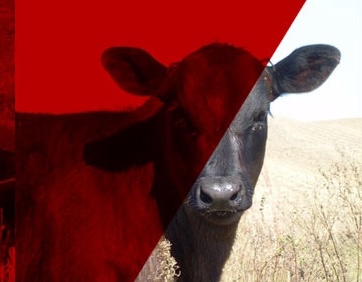Greetings beef producers. To continue building on previous Beef Quality Assurance (BQA) related articles, I want to talk about how the beef industry is making moves to use BQA as the gold standard of animal welfare, and how that is good news for you. Consumers care about the welfare of food animals whose product may eventually end up on their table. This leads consumers to ask questions about how their food is raised, in this instance, beef. In order to provide consumers with answers, many restaurants, food service, and retailers adopt and implement animal welfare programs. One such instance this has occurred is the BQA certification requirement set forth by most of the major beef packers. For example, Tyson requires 100% of the cattle they purchase to come from a BQA certified feedyard. Cargill requires 90%. Both of these beef packers also require transporters who haul cattle to their plants to be BQA transportation (BQAT) certified. Other beef packers have the similar requirements.
Another example of how the beef industry is buying into the BQA program, is through adopting the BQA program in the industries sustainability efforts. Sustainability has been the talk of the beef industry for several years now. Many organizations have or are releasing sustainability goals or implementing sustainability programs. Others are participating in sustainability initiatives such as the U.S. Roundtable for Sustainable Beef (USRSB). You may wonder how does this relate to BQA? Well, to be straight forward, the USRSB has adopted that participation in BQA program meets the animal health and welfare metric of the initiative.
So, why should this matter to you? With the adoption of BQA across the industry as the animal welfare gold standard program, it means producers will not need to worry about implementing additional animal welfare programs on their operations in order to market their cattle. What do I mean by this? Think if every food service, restaurant, or retailer had their own animal welfare program. An animal welfare program created by someone who has never been a part of a cattle operation or worse, stepped foot on one. Producers would find themselves working to adopt a welfare program on their operations that may have unrealistic expectations in order to market their cattle. The BQA program comes from recommended guidelines developed by cattle producers, veterinarians, academic representatives, and other animal welfare experts, that is backed by industry related research.
While the terrible arctic temperatures and blizzarding weather experienced back in February took a toll on the psyche of farmers and ranchers, the articles and pictures from around the country of calves in folk’s homes and truck cabs showed the dedication of our industry to animal welfare. However, those positive feelings consumers felt in that moment subside, and are replaced with a call to action to provide more objective measurement of animal welfare improvements. Animal welfare is a leading discussion topic for the beef supply chain. Companies are either already implementing or having the discussion of implementing some sort of animal welfare program within their business model.
The good news for beef producers is, we have done a great job highlighting the leading industry program that is proven to improved animal welfare across the U.S. beef industry for more than three decades, and how this program should be used as the measuring tool of the industry’s progress. It is clear that as the goals and targets are discussed in these different venues, there is a recognition that trusted science-based training programs like BQA are the only real feasible approach to objective improvements to animal welfare.
While others setting goals for our industry who are not directly involved in animal production should make you nervous, the bright spot is, if they can stay focused on programs like BQA, it will provide the needed data to show marked improvement in animal welfare across the U.S. It also benefits beef producers who are already implementing BQA best management practices on their operations.
Join your fellow producers and help the industry by becoming BQA certified and implementing BQA practices on your operation today! The BQA program is offered through in-person and online training. To become BQA certified in-person, contact your veterinarian, a Nebraska Beef Extension Educator in your area, or find an in-person BQA training happening near you by visiting bqa.unl.edu.
Happening in June, the Nebraska BQA program is hitting the road offering in-person BQA trainings all across the state of Nebraska. To find the training that is closest to you, visit https://bqa.unl.edu/training-events.
Interviews with the authors of BeefWatch newsletter articles become available throughout the month of publication and are accessible at https://go.unl.edu/podcast.
Topics covered:
Beef Quality Assurance & cattle welfare, Cattle health & BQA

